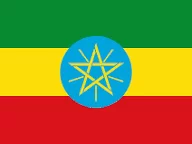

Last updated on September 11th, 2021 at 02:39 pm
Ethiopian police over the weekend were patrolling the country’s troubled Oromia region and the capital, Addis Ababa, following a week of unrest in which 166 people were killed and more than 2,000 arrested, after a popular singer was shot dead.
In Oromia, 145 civilians and 11 members of security forces were killed, Girma Gelam, deputy police commissioner in the region, told the state-affiliated Fana Broadcasting Corporate. Another 10 people were killed in the capital, eight of them civilians.
The internet was cut last week to try to dampen the protests and made it difficult for rights monitors to track the scores of killings.
More than 2,280 people were arrested in Oromia and Addis Ababa, said police. Arrests included that of a well-known Oromo activist, Jawar Mohammed, and more than 30 supporters. It is not clear what charges they might face. The Oromo make up Ethiopia’s largest ethnic group but had never held the country’s top political post until Prime Minister Abiy Ahmed came to power in 2018.
The arrest of opposition figures “could make a volatile situation even worse,” Human Rights Watch has said.
The unrest erupted after popular singer Hachalu Hundessa was killed. He had been a prominent voice in anti-government protests that led to Abiy coming to power. The singer was buried Thursday in a ceremony shown on national television.
The new disturbances amount to the prime minister’s greatest domestic test since he took office, say analysts. He was awarded the Nobel Peace Prize last year for dramatic reforms, including welcoming home once-banned exile groups. However, Abiy’s steps to open political space have been used by some Ethiopians to air ethnic and other grievances. At times it has led to deadly violence, and human rights groups have accused security forces of abuses.
Speaking about the week of unrest, Abiy said he had recently extended an offer of peace to dissidents, but they have “taken up arms” in revolt against the government in a week.
Those who participate “in the destruction of the nation cannot be considered guardians of the nation,” Abiy said on Friday.
“It’s a moment when people need to pause and de-escalate,” said Murithi Mutiga, project director for the Horn of Africa with the International Crisis Group. He cited a series of challenges in Ethiopia including an armed insurgency in parts of the country and tension over the timing of the next election. The government recently delayed the vote, citing the coronavirus pandemic.
The past week appears to be the most serious challenge yet to Ethiopia’s transition to multifaceted democracy, Mutiga said. “Thankfully, the situation seems to have calmed down in Addis and parts of Oromia but the scale of the violence, the degree of grievance witnessed on the streets and the danger of instability was quite high.”
(AP)
Hilton launched Signia by Hilton for its first appearance in Egypt and Africa through its hotel expansions. These hotels at…
UNICEF reported that, nearly 2900 people died of cholera across Eastern and Southern African countries while children suffer most greatly…
Enza, based in the United Arab Emirates, obtained $6.75 million in initial investment funding from Algebra Ventures and Quona Capital.…
US Secretary of State Marco Rubio ordered South African Ambassador Ebrahim Rasool to leave America by March 21 because he…
Early 2025 ends with IPL fever in India and cricket fans receive good news of an international schedule full of…
National teams from Africa advance their World Cup qualification pursuit as they take part in Matchday 5 of the qualifiers.…
This website uses cookies.